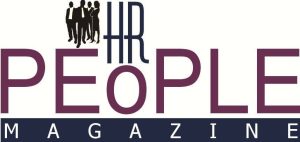By Ola Ehinmoro
Director of Operations, African Union Development Agency-NEPAD
In an era defined by rapid technological evolution, Africa is positioning itself as a key player in adopting artificial intelligence (AI) across various industries. Among these, human resources (HR) stands out as a sector with significant potential for transformation. For HR practitioners in both public and private sectors, acquiring and leveraging AI skills is no longer a luxury but a necessity. By 2025, AI will not only redefine traditional HR practices but also empower HR professionals to drive organizational efficiency, enhance employee experiences, and support Africa’s development goals.
The Current Landscape of HR and AI in Africa
Africa’s workforce is unique, characterized by its diversity, youthfulness, and growing dynamism. With over 60% of its population under the age of 25, the continent faces both opportunities and challenges in managing talent. While public sector HR often deals with large-scale workforce management, the private sector focuses on agility and competitiveness. Traditionally, HR processes have been manual, time-consuming, and reactive. AI promises to address these inefficiencies by introducing automation, predictive analytics, and data-driven decision-making. However, the successful integration of AI depends on HR practitioners developing the necessary skills to harness its full potential.
Why AI Skills Are Essential for HR Practitioners
AI offers tools and systems that enhance HR functions, making them more strategic and impactful. Here’s why HR professionals need AI skills:
1. Data-Driven Decision-Making
2. Automation of Repetitive Tasks
3. Enhanced Recruitment Processes
4. Employee Experience and Retention
5. Workforce Planning and Diversity Management
Opportunities for HR Practitioners in Africa
1. Upskilling Through Targeted Training
2. Strategic Workforce Development
3. Improving Public Sector Efficiency
4. Supporting SMEs and Startups
5. Enhancing Employee Wellbeing
Steps to Acquire AI Skills for HR Practitioners
1. Enrol in AI-Focused Courses
2. Leverage Free Resources
3. Participate in Hackathons and Bootcamps
4. Collaborate with Tech Teams
5. Experiment with AI Tools
6. Join Professional Communities
Overcoming Challenges to AI Adoption
1. Limited Access to Technology
2. Resistance to Change
3. Ethical Concerns
4. Cost of Implementation
The Future of HR in Africa: A Vision for 2025
By 2025, HR in Africa will be a far cry from its current state. AI will redefine what it means to be an HR practitioner, shifting the role from administrative to strategic. Professionals with AI skills will:
– Lead Digital Transformation
– Promote Workforce Agility
– Champion Diversity and Inclusion
– Enhance Employee Development
Conclusion
AI presents an unprecedented opportunity for HR practitioners in Africa to revolutionize how they manage talent, enhance organizational performance, and contribute to economic development. By taking deliberate steps to acquire AI skills through targeted training, experimentation, and collaboration, HR professionals can lead the charge in building resilient and adaptive workplaces.
If anything is not clear in this article, go and query AI, that is your first step in developing the skills. So what are you waiting for?

Ola Ehinmoro
Director of Operations, African Union Development Agency-NEPAD
